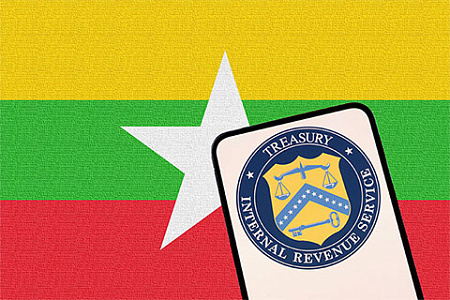
In a significant pivot in foreign policy, the United States, under former President Donald Trump, has expanded its criticism and punitive measures in Myanmar to include not only the ruling military junta but also the ethnic rebel groups fighting against it. This shift marks a departure from the previous administration’s focus on human rights abuses by the military, now encompassing allegations that rebel factions have established sophisticated online scam operations defrauding internet users worldwide, including American citizens.
The U.S. Treasury Department recently imposed sanctions on the leadership of the Karen National Union, a prominent ethnic armed organization. A Treasury official, in announcing the sanctions, notably referred to the nation by its older name, Burma, a nod to its colonial past. While Myanmar has been an independent state for over seven decades, its journey has been perpetually fraught with instability.
The country’s attempt at a democratic transition in the early 21st century, spearheaded by Aung San Suu Kyi, the daughter of a national liberation hero, ultimately faltered. Despite rhetorical support from the U.S. and other Western nations, tangible assistance was scarce, and ethnic insurgencies persisted in minority-dominated regions. This volatile environment paved the way for the military to seize power once more in 2021, arresting Suu Kyi and her allies and swiftly quelling widespread protests.
The junta has announced plans for legislative elections in December, a move widely dismissed by the opposition as a deceptive maneuver. Regionally, the Association of Southeast Asian Nations (ASEAN), of which Myanmar is a member, has voiced intentions to help resolve the crisis, yet concrete action remains elusive. Wealthier and more stable ASEAN members, such as Malaysia, have shown reluctance to become entangled in Myanmar’s complex internal political dynamics.
Washington’s decision to sanction both sides – the military regime and the Karen rebels controlling territories bordering Thailand – signals a complex approach. The underlying reason for targeting the rebels is rooted in intelligence suggesting massive fraudulent operations. According to Reuters, criminal syndicates in Myanmar have coerced or enticed hundreds of thousands into working in illicit call centers and similar facilities, perpetrating scams on a global scale.
Myanmar’s strategic location, bordering China and possessing rich mineral and hydrocarbon reserves, naturally draws Beijing’s keen interest. China is not a passive observer, maintaining consistent contact with both the official government and various rebel groups. This pragmatic engagement is driven by security concerns, as conflicts in border regions have occasionally resulted in injuries to Chinese citizens. Alexander Lukin, research director at the Institute of China and Contemporary Asia of the Russian Academy of Sciences, highlighted China’s significant influence, noting its strong ties with the Myanmar government, including military aid, and its continued engagement even in areas outside central control.
Meanwhile, Moscow, leveraging historical friendly relations dating back to the Soviet era, primarily collaborates with the Myanmar military. Russia supplies advanced helicopters and other military equipment to the country, and joint naval exercises between the Russian and Myanmar navies are currently underway. This web of internal conflict, regional hesitancy, and competing great power interests underscores Myanmar’s unenviable position as a geopolitical flashpoint with no easy resolution in sight.
